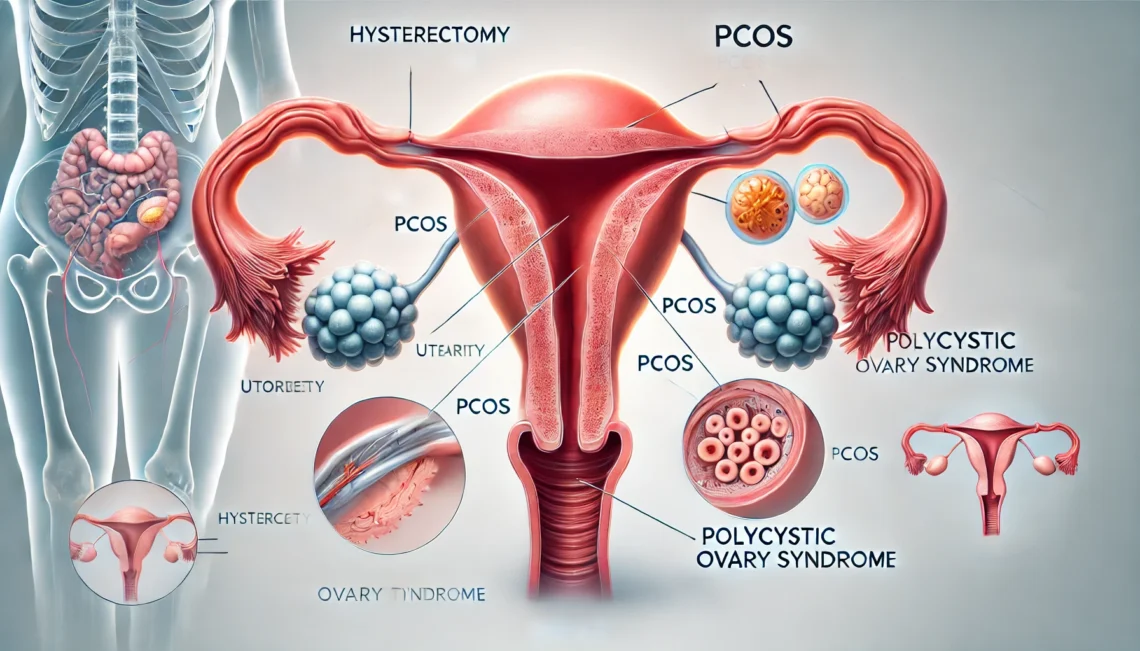If you’re breastfeeding and considering Ozempic (semaglutide) for weight loss or managing diabetes, you might wonder whether it’s safe. Ozempic has become popular for its role in controlling blood sugar and supporting weight loss. However, when it comes to breastfeeding, there are some important considerations you should be aware of before deciding to use it. Let’s dive into the facts and expert advice on taking Ozempic while breastfeeding. Ozempic is a prescription medication primarily used to treat type 2 diabetes. It contains semaglutide, a GLP-1 receptor agonist that works by regulating blood sugar levels, promoting insulin production, and reducing hunger.…
Popular Posts
-
-
Ozempic, originally designed to treat type 2 diabetes, has gained popularity for its ability to aid in weight loss. If you’re considering Ozempic for weight loss, you may be wondering how to get prescribed ozempic for weight loss. This guide will walk you through the steps to help you understand how to get prescribed Ozempic and what to expect throughout the process. How to Get Prescribed Ozempic for Weight Loss Step 1: Schedule a Consultation with Your Doctor Start by scheduling a consultation with your healthcare provider. Since Ozempic is FDA-approved for type 2 diabetes, not weight loss, your doctor…
-
If you’re dealing with PCOS (Polycystic Ovary Syndrome), you probably know how tough it can be to lose weight. Hormonal imbalances, insulin resistance, and other factors make it more challenging. But here’s the good news—there’s one simple, low-impact exercise that can help: walking. Yes, a regular walking for PCOS weight loss routine can be a game-changer for women with PCOS. It’s easy, effective, and you can do it anywhere. In this guide, we’ll show you exactly how to create a walking routine that will help you lose weight, improve your insulin sensitivity, and feel better overall. Why Walking for PCOS…
-
If you’ve been dealing with the ups and downs of Polycystic Ovary Syndrome (PCOS), you might have heard that a hysterectomy could be a potential “cure.” The idea of getting rid of symptoms like irregular periods, acne, excess hair growth, and infertility through surgery can sound tempting. But, is a hysterectomy really the right solution for PCOS? Let’s take a closer look and see what the experts say. PCOS is a common hormonal disorder that affects women during their reproductive years. It can cause a range of symptoms, including: Irregular or missing periods Cysts on the ovaries (though not everyone…
-
If you’ve been diagnosed with Polycystic Ovary Syndrome (PCOS), you’re likely familiar with the challenges it brings. From managing weight gain and insulin resistance to dealing with irregular periods, PCOS affects various aspects of your health. Recently, a medication called Ozempic (semaglutide) has gained attention, especially among women with PCOS and a lot of people ask the question “Will insurance cover for PCOS?”. Known primarily for helping people with type 2 diabetes, Ozempic has shown promise in addressing some common struggles women with PCOS face, like weight loss and insulin sensitivity. But here’s the key question many have when considering…
-
Polycystic Ovary Syndrome (PCOS) is a prevalent hormonal disorder affecting women worldwide, often leading to a range of symptoms, including irregular periods, fertility challenges, acne, and excessive hair growth. While the condition is complex and multifactorial, recent studies suggest that Vitamin C may offer significant benefits in managing PCOS. This article explores how Vitamin C can support hormonal balance, improve fertility, and reduce inflammation in women with PCOS. What is PCOS and How Can Vitamin C Help? PCOS affects up to 1 in 10 women of reproductive age, causing imbalances in hormones such as insulin and androgens. The most common…
-
Polycystic Ovary Syndrome (PCOS) affects millions of women worldwide, often leading to hormonal imbalances, inflammation, and nutrient deficiencies—all of which contribute to hair loss. Learn more about the causes and symptoms of PCOS hair loss here. For many, supplements offer a promising solution to strengthen hair, prevent shedding, and address the root causes of PCOS-related hair loss. But do they really work? In this article, we’ll explore the most effective supplements for PCOS hair loss, how they work, and what you should consider before adding them to your routine. How PCOS Causes Hair Loss Hair loss in PCOS, or androgenic…
-
Polycystic Ovary Syndrome (PCOS) is a hormonal disorder that affects various aspects of a woman’s health, including her hair. One of the most common yet frustrating symptoms of PCOS is hair loss, often referred to as androgenic alopecia. This type of hair loss is caused by hormonal imbalances unique to PCOS. In this article, we’ll explore the role of hormones in PCOS hair loss, the science behind it, and strategies to restore balance and protect your hair. Understanding Hormonal Imbalances in PCOS PCOS is characterized by an overproduction of androgens (male hormones like testosterone) and imbalances in other hormones such…
-
Polycystic Ovary Syndrome (PCOS) affects millions of women worldwide, bringing with it a range of symptoms that can impact daily life. One of the most distressing side effects is hair loss. For women dealing with PCOS, hair thinning, bald patches, and receding hairlines can be emotionally challenging. In this article, we’ll delve into the causes of PCOS hair loss, the symptoms to watch for, and what you can do to manage it. What Causes PCOS Hair Loss? PCOS hair loss, also known as androgenic alopecia, is primarily caused by hormonal imbalances. Women with PCOS often have higher levels of androgens…
-
Polycystic Ovary Syndrome (PCOS) affects not only hormonal balance but also the health of your hair. Many women with PCOS struggle with hair thinning or loss due to hormonal imbalances, inflammation, and nutrient deficiencies. While diet and lifestyle changes play a vital role in managing PCOS symptoms, certain vitamins and minerals can help improve hair health and prevent further loss. This article explores the essential nutrients for PCOS hair loss and how to incorporate them into your routine. Why Nutrients Matter for PCOS Hair Loss Hair health depends on a steady supply of essential vitamins and minerals. In PCOS, hormonal…










